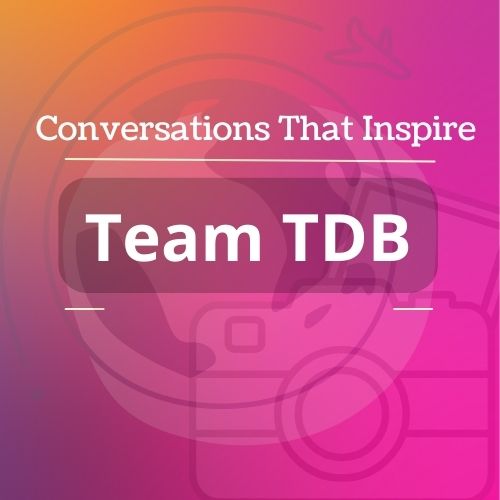It appeared to be a beautiful morning as I sat sipping my morning tea until my phone rang. I had got up little early to make time to write during the morning hours, but the conversation on the phone left me shaken and lost.
‘Farah- my dad is no more. He died with a stroke this morning. I can’t describe my feelings of emptiness and regret. I don’t know what to do.’ My friend Amal appeared visibly rattled with emotions. The loss of parents is undeniably the biggest pain we encounter in life, making us feel like an orphan no matter how old we are, but I felt really sad for my friend today. He was not only struggling with the pain of losing his father but with feelings of remorse and guilt. No, he was not the kind of son who had sent his father to an old age home or done something grave. It was that he always kept planning to schedule a time to speak kind words to his father and exchange positive strokes but kept on postponing. Now his father was no more to receive them. I am not talking of the cerebrovascular stroke that often leads to handicap or death. I am talking of strokes that make us feel alive and happy.
Long ago, a psychologist named Eric Berne defined social interaction as a transaction and strokes as a unit of recognition or attention. Strokes occur when we recognize each other either through words, gesture or actions. Strokes can be positive or negative; conditional (given for doing something) or un-conditional (for simply being what you are). So, while infants need cuddling, adults too crave for a smile, a comment, a hand gesture, or similar other forms of recognition. Relationships die a silent death when we stop exchanging strokes!
Today as my friend’s father died due to stroke, something inside my friend died too. Due to the generation gap and drowning in responsibilities, he had been a little too generous in giving negative strokes to his father recently. Somewhere in his heart, he had the intention to apologize for his actions, hug his father and thank him for all his efforts in raising him up but kept on delaying it. Now the time had taken away that chance too. While positive memories of his childhood days with his father dampened his eyes, his heart cringed with regret thinking of how he could have been more patient and affectionate towards his dad. Watching him sitting in a flustered and wishful state made me realize the value of time and strokes in life. Exchange strokes with people who matter, before a stroke, takes away all!
It is indeed magical how a small positive stroke can make us feel uplifted and happy. One of the best gifts we can receive is the unconditional positive stroke. If you get to receive it from your loved ones, you already have enough to be grateful for. I remember attending an anniversary party of a friend who was asked, ‘what is the best thing you love about your husband?’ Her reply was, ‘I love him because he loves me for what I am, how I am! He had proposed to me when I was a successful model weighing 48 kgs. I asked him that time what he liked about me? Being a simple man not so good with words, he replied – ‘because you are so beautiful inside and out’. Post marriage I became a mother weighing 85 kg to my present where my child is 8 years, and I still weigh a whopping 80 kg. Previously I had long thick hairs, now credit to hormonal imbalances I have thin, limp hairs coupled with premature greys and dark circles under my eyes. On most of the days when I look at my face, figure and scars and feel unhappy about myself, I often approach my husband to validate my present form. His reply is still the same– ‘you look beautiful’. While the better part of my mind begs to disagree with his words, his genuine expression and caring actions put all doubts to rest.’ While struggling with our individual battles, the best gift one can receive is this kind of unconditional positive regard and unconditional positive strokes at least from our family, if not from outsiders.
As a child, I learnt to value the importance of strokes when I was kept deprived of it for some reason. Whenever my mother wanted to reprimand me for my behaviour, she never hit me or used harsh words. She mostly resorted to zero stroke, wherein she completely ignored my presence around her and withdrew all forms of positive or negative stroke. This indifferent behaviour of her left me so suffocated that I would be back to my best behaviour in no time. While it worked for her while raising me up, the same can be very dangerous when used by adults.
Many times, we see couples losing that thread in their relationship that bonded them together as minor disagreements become big issues when they don’t talk it out. Worse is when they consciously or unconsciously nurture the differences by giving negative strokes freely and using only positive conditional strokes, that too sparsely. Eventually, they may be seen growing old together under the same roof but devoid of the joy they once brought to each other. Being indifferent to each other piled up with years of dissatisfaction, they don’t even realize when they move to the point of zero stroke-total indifference. It becomes nearly impossible then to mend or recreate the lost magic in their relationship.
Exchanging strokes build relationships and also provides feedback. I remember a discussion with a friend in govt service who worked just enough to survive in the organization. When I asked him why, his reply was, nobody cares or monitors my labour here. Scarcity of positive strokes or any other form of feedback from his boss had transformed him from a star performer to a mediocre employee. Getting positive conditional strokes helps one feel competent and negative conditional stroke enables changing unwanted behaviour.
As I write this article, the concern for the kids of the present generation worries me. Nuclear families, dual-career couples and technology distracting us all the time, some of them are growing up in utter dearth of strokes. Eventually, they get enticed to join social media for the gratification of their self-esteem through likes and comments which are again driven by another set of complex behaviour.
Another interesting thing that needs mention is the ‘stroke filter’ – a mental filter that operates all the time unconsciously. This filter only allows some strokes to reach us while distorting or completely blocking others. Has it ever happened to you that someone praised you whole-heartedly, but you could not receive it with thanks? I saw it in operation when I met my friend Priya over dinner. Wearing a traditional dress and matching danglers, she looked beautiful. I could not resist praising her to which she gave a sheepish smile that seemed to reject my words almost instantly. The face of the same girl is eye-grabbing when she receives a positive stroke concerning her analytical skills for it matches her self-belief. I could understand her situation for on multiple occasion while growing up, she has been made to feel conscious about her dark skin tone. Now this developed negative mental filter about her appearance doesn’t allow the positive stroke to reach her. So, beware of all your mental filters lest they sieve away the happiness, preventing it from reaching you.
Lastly, dear reader reading this post, don’t forget to ‘stroke yourself’. Whether you are a homemaker religiously working to support your family goals or a breadwinner busy in chasing deadlines to run your family- press the pause button -take a moment and appreciate yourself. For how can you love others if you don’t love and appreciate yourself?
So, while we may work hard for increasing the balance in our bank accounts, what about working on our social account too? Just as we spend money to buy material things to make our lives happier and richer, let us promise to use our stroke bank generously. Life is short and to make the most of it, give positive strokes freely to those around you; be it something as little as a smile, a compliment or any gesture that can count. Indeed, our life and this world will be a far more positive and compassionate place to be.

About the author
Dr. Farah Naqvi
Is an academician, corporate trainer and HRD consultant associated with many MNCs and institutions in the field of academics, behavioural training, consulting and research. She has worked with premier institutes like Indian Institute of Management Ahmedabad (IIMA), IBA Bangalore, Centre for Organization Development Hyderabad (COD), ICFAI Hyderabad where she pursued her research, teaching and training pursuits. She has to her credit more than 20 research papers published in International refereed Scopus, and ABDC listed journals. Her research work has been extensively cited by researchers in India and abroad. Her research project on ‘Perspectives of Indian Women Managers in the Public Sector’ published by Indian Journal of Gender Studies- Sage Publications created ripples in the field of gender studies. She was invited for the same as a key note speaker in the sponsored session by United Nations development fund for women. She has presented and chaired in many conferences in premier management institutions like IIM’s. She has reviewed the works of famous authors like William A Cohen, James M. Hunt, Joseph R. Weintraub, Barry Gerhart, Sara L Rynes and Roy.H.Lubit as a book reviewer for South Asian Journal of Management. Dr. Farah has conducted consulting & Management development programs for a diverse clientele throughout her career including Ministry of Finance Govt. of Afghanistan, Oriental Bank of Commerce, Power Grid Corporation Ltd., Bharat Electronics Ltd., National Mineral Development Corporation Ltd., Bharat Sanchar Nigam Ltd, College of Defense Management, Hyderabad to name a few.
Currently, she is based in Kuwait with her family and providing training, advising & consulting services to higher education institutions. For her debut fiction novel- ‘The light in Blackout’ she has been featured in leading English newspapers like The Hindu, Business Standard, Dailyhunt, Newstrack, Newsnow, The India Observer(TIO), Namibia Press Agency and many other online and print media.



















